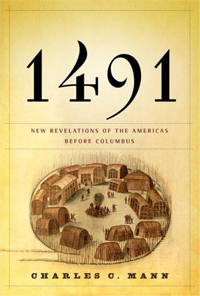I'm trying to catch up on the episodes of Writing Excuses I haven't been listening to for the past year. If you want to write genre fiction, or any fiction, you should listen to this podcast. Anyway, every once in a while they do an episode of "microcasting," where instead of 15 minutes on one subject, they answer a variety of questions in one 'cast. Since I didn't have one really solid idea for a post this week, I decided I would micropost.
~~~
"You should really be wearing shoes back here," my boyfriend told me.
"I'll be fine," I said. I have a hobbitish tendency to refuse shoes during the summer, and my feet are pretty tough as a result. Consequently, I wasn't afraid of walking through the timber to help find firewood for the bonfire on Friday. However, timbers on old farms have often been dumping grounds for junk, as I should have known.
After stepping on what was probably a shard of a broken toilet, I hobbled back to my boyfriend's house, leaving nice splashes of blood on the leafy ground. Even after bleeding though one layer of bandages, I didn't think it was all that serious, so we gave it another layer and I sat around the fire for a couple hours, and
only sitting, as my boyfriend insisted. When I got home, my parents gave it a look and decided I should go to the emergency room. I now have four stitches, a pair of crutches I only needed for two days, and some Finding Nemo and Iron Man stickers the nice people at the ER gave me. Today I've mostly regained mobility, though I'm still walking a little on the side of my foot, but the stitches aren't supposed to come out for another week. Oh bother.
~~~
When I need a respite from people, I tend to archive-binge on my favorite webcomics. I've added a new one. Order of the Stick is now on my list of comics to follow, and next time I need to be anti-social for a couple of days, I know where to look.
~~~
Sometimes you need to tear down something old so you can rebuild. On the other hand, sometimes you can just slap some paint on it and it will be fine. Both of these philosophies have been key as my family's been fixing up our old house. Today we tore out half the front porch, and the roof above it is sitting precariously on temporary posts as we tear out the rotting supports beneath. My mom has a vision of a new, pretty porch railing and flowers planted in front of it.
Looking at our house, it's easy to get discouraged about the amount of work we have to do. Weekend after weekend is spent tackling some project that usually leaves the house a mess, and we know that soon there'll be yet another project that will make it look like we're actually tearing the house down, not fixing a pocket door or putting sand paint on the ceiling or wiring upstairs. But we've come pretty far. I found some pictures a while ago of when Dad and I took down the old cabinets in the kitchen prior to knocking out the crumbling, icky plaster. Now we have a blue and white kitchen with a Bible verse painted on the wall. Eventually we will refinish the old wood floors and put in carpet and finish painting and rebuild the front steps and fix all the screen windows and get air conditioning and tile and fix the hole in the attic and reroof and put stairs up to the attic and clean up the basement and string the stairs to the basement and plant more flowers and get new siding and....
Sigh. I love this house. This old, stupid house.
~~~
Before I get out of my car to work in the mornings, I pray that I'll be a good worker and a good witness. I don't really know how to do the latter. Labor comes naturally to me. Reaching out to people doesn't. I'm used to school and church, where most everyone is nice and we all have something in common -- Jesus. At work, most everyone is nice, too, but most of the other people I know don't wrestle with custody issues for their kids or have cheating boyfriends or no teeth from former meth addictions. I listen to them talk about these things - I think that's a good first step -- and when they ask about my life, I tell them. And when I mention having a good family and supportive parents, I'm told I'm lucky. I know I am, now.
~~~
I've been telling myself I'll do this for two weeks, but now I'm telling the Internet so that it'll actually happen. On Wednesdays I intend to review the books I've been reading here for the blog. They will be pretty random, things that caught my eye in the library, but I hope they'll be enjoyable and interesting. Maybe I can point you at some good books.
That's it for microposting today. The only problem is it's hard to come up with a relevant concluding sentence with just the right kick, humor, or both. Oh well.










